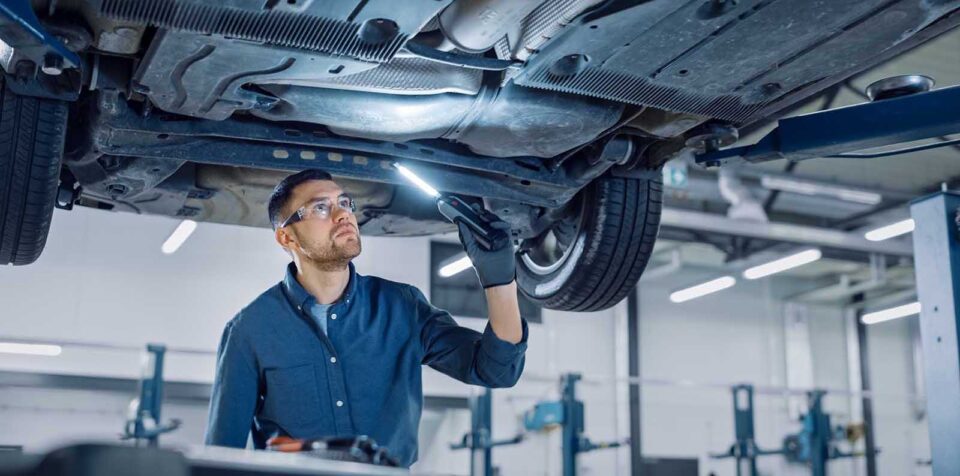The automotive industry is on the precipice of one of its most transformative eras. Ever since the invention of the wheel, there has always been an evolution in the way we move, but today’s changes are pivotal. Electric cars, self-driving capabilities, advanced telematics – these aren’t concepts from a science fiction novel; they’re becoming our reality. As we move into this new age, the men and women behind the scenes – our trusted automotive technicians – find themselves in a position where they need to recalibrate their skills to ensure they remain relevant in the new automotive paradigm.
The complexities introduced by these advancements demand an elevated skill set, one that combines traditional mechanical knowledge with a keen understanding of digital technologies. For the automotive technician, it’s no longer just about changing oil or replacing spark plugs; it’s about software updates, calibrating sensors, and understanding intricate electronic systems. This article delves deep into what this future looks like and how technicians are gearing up for it.
The Evolution of Vehicles: From Traditional to Tech-Centric
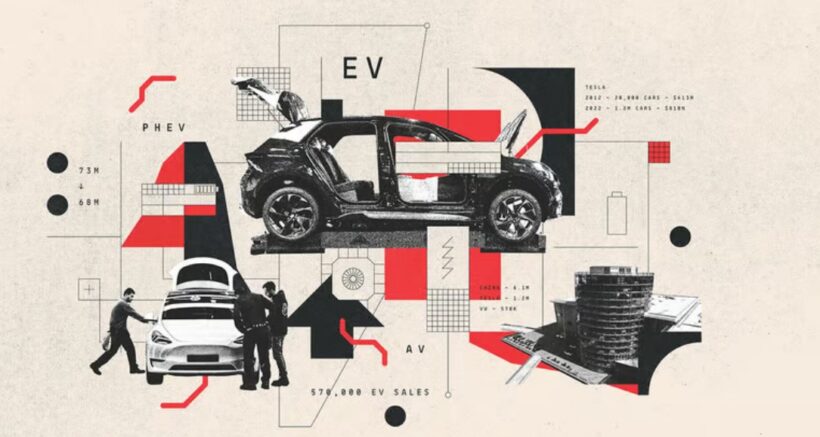
Since the invention of the combustion engine, vehicles have constantly evolved. However, the last few decades have seen a tectonic shift not just in what powers vehicles, but also in how they operate, communicate, and even think. This transformation heralds a new era where automotive technicians need a blend of the old and new to stay relevant.
Examples:
- Introduction of hybrid and electric vehicles: Beyond the traditional gasoline engines, technicians now grapple with electric motors, batteries, and hybrid systems. Understanding these new powertrains is essential for diagnostics and repairs.
- Development of self-driving cars: As autonomy increases, vehicles now come equipped with sensors, lidars, and advanced algorithms. This demands a fresh skill set for calibration and maintenance.
- Connectivity features like onboard diagnostics and telematics: Modern cars constantly communicate with servers, other cars, and even infrastructure. Technicians must be versed in these communication systems for troubleshooting.
The New Toolbox: Emerging Technologies in Vehicle Maintenance
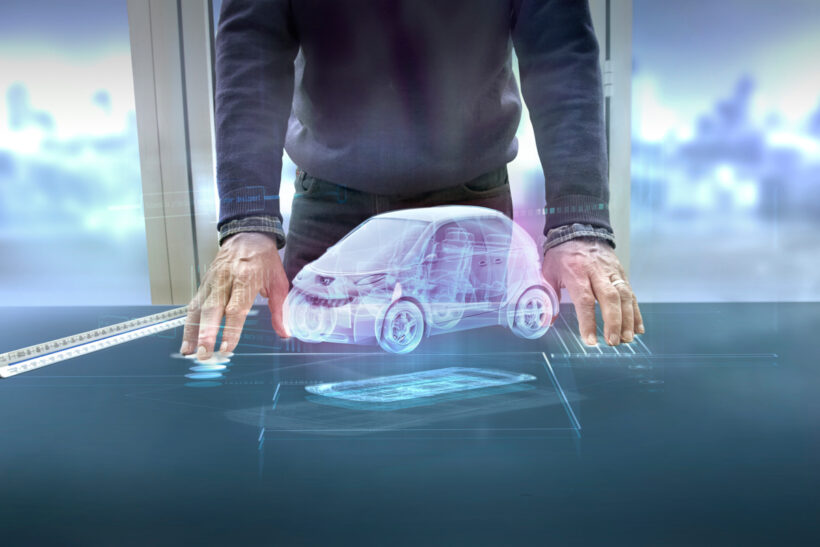
Vehicles today are not just about mechanical components. Digital technology intertwines with physical parts, making modern vehicle maintenance a blend of mechanical dexterity and digital fluency. For technicians, this means an upgraded toolbox filled with not just wrenches but software solutions as well. By staying current with emerging technologies, technicians can ensure they’re equipped to handle this paradigm shift.
Examples:
- Advanced Driver Assistance Systems (ADAS) calibration: As safety features like lane-keeping assist and adaptive cruise control become standard, technicians must know how to calibrate and ensure these systems function correctly.
- Software updates and digital diagnostics: Modern cars frequently receive over-the-air software updates. Understanding this digital facet is key for technicians, from software rollbacks to compatibility checks.
- Battery technology for electric vehicles: With EVs becoming mainstream, understanding battery health, range, and replacement is crucial for technicians.
Challenges Faced by Today’s Automotive Technicians
As vehicles embrace a digital frontier, technicians face a blend of opportunities and challenges. The depth and breadth of knowledge required today surpasses that of the past, demanding continuous learning and adaptability.
Examples:
- Keeping up with rapid technological advancements: As vehicles integrate new tech annually, technicians face the daunting task of perpetual education.
- Managing data security and privacy concerns: With connected cars come concerns about hacking and data breaches. Technicians play a role in ensuring vehicle data integrity.
- Balancing traditional repair methods with digital solutions: While digital tools are crucial, traditional mechanical repairs remain foundational, requiring a balanced skill set.
The Digital Revolution: How Software is Changing Auto Repairs
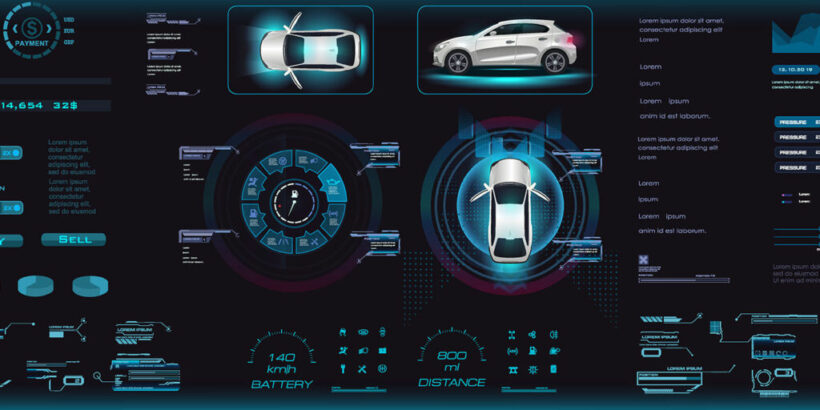
The infusion of software in the automotive realm has revolutionized how repairs are approached. Digital solutions, especially those like management software, optimize workflows, manage customer relations, and ensure efficient diagnostics, making them indispensable in modern auto repair shops.
Examples:
- Diagnostic software that communicates with the vehicle’s onboard systems: These tools offer real-time insights into a vehicle’s health, simplifying diagnostics.
- Workflow management solutions for streamlined operations: From appointment scheduling to invoicing, digital tools enhance shop efficiency.
- Customer relationship management tools: Such tools help shops maintain a record of repairs, send reminders, and offer a superior customer experience.
Training and Certification: Gearing Up for the Future
With the industry’s evolution, training and certification become pivotal. Ensuring technicians are well-equipped, up-to-date, and certified gives them an edge, ensuring they’re prepared for the vehicles of tomorrow.
Examples:
- Training modules on electric vehicle maintenance: Dedicated courses ensure technicians understand EV nuances, from charging infrastructure to battery health.
- Certifications for ADAS and autonomous vehicle repairs: As more vehicles feature advanced autonomy, certifications ensure technicians are competent in maintaining these systems.
- Workshops on vehicle connectivity and digital systems: With vehicles becoming more interconnected, such workshops ensure technicians stay ahead of the curve.
The Road Ahead: Predictions and Preparations
As we peer into the future, the automotive realm promises more innovations, from fully autonomous cars to vehicle-to-vehicle communication. Preparing for such advancements ensures technicians remain indispensable in this ever-evolving landscape.
Examples:
- Growth of fully autonomous vehicles: As Level 5 autonomy nears reality, technicians need to be ready for the maintenance demands this brings.
- Rising significance of eco-friendly vehicles: As the world leans green, understanding hybrid systems, regenerative braking, and other eco-tech becomes essential.
- Increased connectivity: With potential vehicle-to-infrastructure communication, understanding this intricate web of connectivity becomes pivotal for technicians.
Conclusion
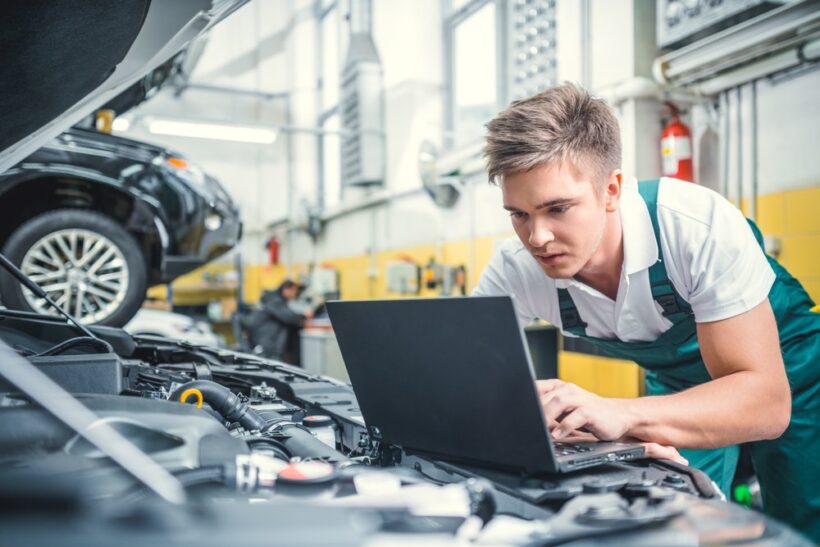
The automotive world, once primarily driven by mechanical advancements, now stands at the confluence of technology and mechanics. As vehicles transition from being mere modes of transport to interconnected, intelligent machines, the role of automotive technicians has expanded and evolved. They are no longer just the guardians of a vehicle’s physical well-being but are also its digital custodians. Technicians today have to navigate the delicate balance between preserving the legacy of automotive craftsmanship and diving into the future of automotive digitization.
Taking a leaf out of history, the most successful professionals have always been those who embraced change, sought knowledge, and adapted. The automotive technicians of today have a unique advantage – the wealth of resources and training available to them. From understanding the intricate neural networks of autonomous vehicles to the nuances of battery health in electric vehicles, the learning curve is steep but rewarding. As the curtain rises on the future of the automotive world, filled with promises of AI-driven vehicles, eco-friendly innovations, and unparalleled connectivity, the well-prepared automotive technician doesn’t just survive but thrives, becoming an essential pillar in this exciting journey ahead.

